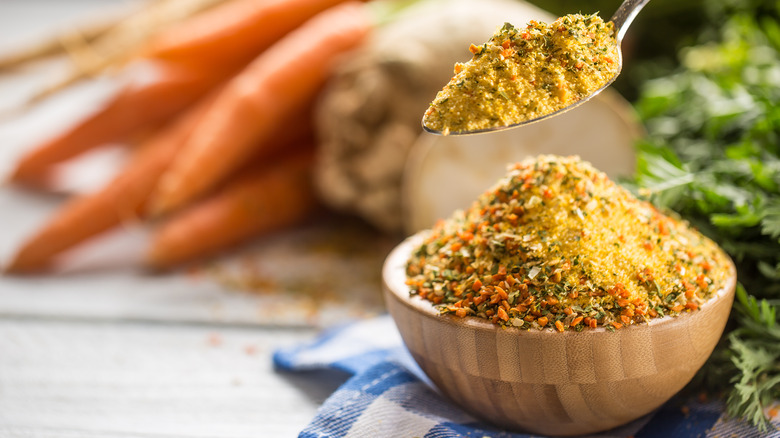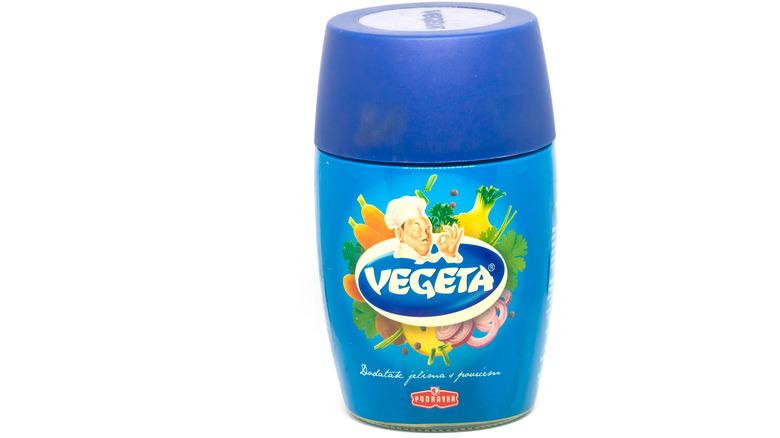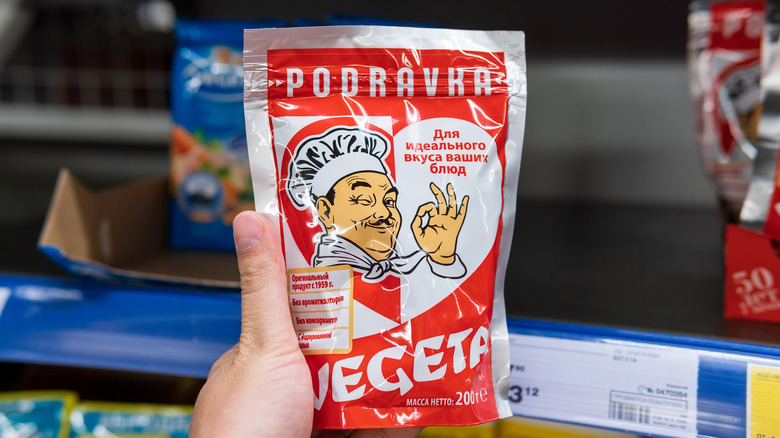Vegeta: The Croatian Seasoning You Should Know About
Spice blends are a superb way to integrate new flavors into your cooking easily. Blending nuts and spices can make a delicious Egyptian dukkah, perfect for sprinkling on chicken or an excellent topping on a yogurt-based dip. Or assemble the extensive ingredients for the complex Portuguese allspice, which can be used in almost anything savory. However, sometimes it's really best to buy a pre-made mix — like the beloved Old Bay, which is something of a mystery.
In Croatia, a popular spice mix is known as Vegeta. Invented by chemist Zlata Bartl in 1959, the seasoning is made from dehydrated vegetables and salt. The mixture became a commercial success, attaining ubiquity in Yugoslavia and expanding sales to nearly 40 countries, reports Croatia2Go. Now, its become the best-selling dehydrated food seasoning in all of Europe, based on data from 31 countries, via Croatia Week.
A handy flavoring flourish for a variety of dishes, let's dive into what this iconic Croatian seasoning is all about
Vegeta seasoning is comprised of dehydrated vegetables and seasonings
Vegeta is made from MSG, salt, spices, and dehydrated vegetables — carrots, celery, onions, potatoes, parsnips, and parsley leaves, via the Vegeta website. Since its creation, Vegeta has been continually produced in Koprivnica, Croatia, but there are also manufacturing plants in Poland, Austria, and Hungary, per Carrefour UAE. The spice mix is similar to a dehydrated soup packet — Bartl's initially gained success from instant bases before inventing the more versatile Vegeta, reports Emerging Europe.
If you'd like to create your own, The Spruce Eats offers an MSG-free homemade alternative. As with the original Vegeta, the prominent component is dehydrated carrots, but this variation combines garlic powder, salt, and turmeric. For those keen to make the seasoning fully from scratch, experiment with varying vegetable bases using a dehydrator.
The Croatian seasoning amplifies savory flavors
Vegeta can be added to nearly any savory food, including soups, meats, cooked vegetables, and sauces. For slow-cooking roasts, it's usually added prior to heat application. But for soups, veggies, or rice, it's added in the last five minutes, per Russian Food USA. The Vegeta brand recommends dissolving 3 teaspoon in 2 cups of water when adding to a liquid base.
As with other MSG seasonings, Vegeta amplifies the savory component of dishes, explaining its popularity for soups and meats. However, unlike most commercial seasonings, it delivers deeper umami through a vegetable medley rather than a spice base. The flavor is salty, with vegetable undertones and a hint of floral spice — not a dominant character. Such a gentle backing strengthens its versatility and lends to combinations with olive oil-heavy Croatian cuisine, but it can be expanded to homey soups or even fries. Look out for Vegeta in major grocery stores around the U.S. and abroad.


